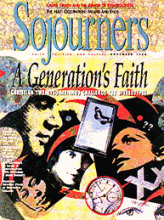The occupation of Haiti marks a new, hopeful era in U.S. relations with our neighbors in this hemisphere, signaling the birth of the "Clinton Doctrine" under which American power lines up against entrenched economic elites on behalf of truly progressive, democratic forces.
Or...the guns-holstered invasion is simply the latest—albeit more benign—chapter of U.S. intervention in poor, Third World countries in "our backyard," as the colonialist Monroe Doctrine refuses to slide into history’s dustbin.
Both analyses are being bandied about as the occupying forces settle in to the day-to-day task of avoiding nation-building on the streets of Haiti. Which spin is more correct won’t be known until the unintended consequences have a chance to run their course and the revisionists finish their work.
Given the history of U.S. military, economic, and political involvement in countries far and wide over the last century, it’s easy to understand those who are suspicious of American motives in this case. The U.S. government’s lukewarm-at-best support for Haitian democracy over the past three years—from halfhearted sanctions to the permitting of CIA- and State Department-sponsored smears of Haitian President Jean-Bertrand Aristide—is enough to give one pause about the sincerity of purpose in the negotiated invasion.
But even with that checkered history, there’s a clear, qualitative difference between a guns-a’blazin’ vanquishing of a hostile foe and what is emerging as a massive police operation. "I didn’t come here to be a cop," a U.S. Army sergeant told a reporter. That may not have been the initial intention, but it’s the on-the-ground reality, and there are worse jobs they could be doing. Ask the Iraqi people.
Read the Full Article
